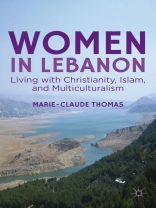Combining insider and outsider perspectives, Women in Lebanon looks at Christian and Muslim women living together in a multicultural society and facing modernity. While the Arab Spring has begun to draw attention to issues of change, modernity, and women’s subjectivity, this manuscript takes a unique approach to examining and describing the Lebanese ‘alternative modernities’ thesis and how it has shaped thinking about the meaning of terms like evolution, progress, development, history, and politics in contemporary Arab thought. The author draws on extensive ethnographic research, as well as her own personal experience.
Tabela de Conteúdo
Introduction PART I: SAGHBINE, A CHRISTIAN VILLAGE: WOMEN, RELIGION, AND SOCIETY Geography and Religious Spaces The Childhood and Adolescence of Young Girls Marriage and the Condition of Married Women Adulthood, Married Life, and Women’s Work Interview – Christian Discourse PART II: MUSLIM LEBANESE WOMEN AND AN ISLAMIC MODERNITY Islam in Lebanon: An Overview Struggle in Modern Islam, Women in Tradition, and the Discourse of the Veil Veiling and Divergent Feminism Voices Personal Status Laws in Islam, Sheikh Muhammad Hussein Fadlallah’s Tafsir, and Hizbullah Lebanese Women Interview – Individual and Communal Perspectives: Muslim Discourse PART III: TRANSFORMATION WITHIN A MULTICULTURAL LEBANON Modernity, Multiculturalism, and Lebanese Women Christian-Muslim Relations, Women and Religion Lebanese Women in all their Diversity: Convergence and divergence En Route Toward a More Inclusive Civil Society Conclusion
Sobre o autor
Marie-Claude Thomas is a visiting assistant professor of Arabic at Oberlin College.












